- Home
- Brian Spangler
Grave Mistakes: A Deadly Vigilante Crime Thriller (Affair with Murder Book 3) Page 15
Grave Mistakes: A Deadly Vigilante Crime Thriller (Affair with Murder Book 3) Read online
Page 15
His smile disappeared, and he turned ghostly white. I hadn’t considered his part in Garret Williams’ death. He was safe, he just didn’t know it. A sheen of sweat emerged over his brow, turning him pasty and ill looking.
“He knows about me?” he asked
“Brian, no names, nobody beyond me. As far as Steve knows, there was me and there was Garrett Williams. That’s it.”
“Okay,” he said, his hand shaking as he took to his drink like a baby to a bottle. I never gave it much thought, but Brian had been a part of the planning that ended in Garret Williams’ death. Could charges be brought against him? After all these years? Oh what a scandal that would be. The news papers would go crazy.
“But, since you asked,” I continued, chaining the topic to settle his nerves. “About Steve? I do hope something comes of it. I would love to see him again.”
“I gotta run,” Brian said abruptly. “Very early day.”
“You sure you don’t want to stay for another?” I asked with my words already slurring.
“Maybe you should get some sleep?” he suggested as he stood and walked toward the door.
“Like I said, we’re not girlfriends,” I joked again.
He gave me a nod and then was gone. My attempted humor, and at making myself feel better, disappeared with the sound of the door closing. I jumped off the couch and went to the computer, clicking through the icons that led me to the Becky software and then to the video feeds in prison. Within a minute, I had a video of Wilma in the infirmary. She was alone with a single guard and a half dozen empty beds. The time displayed in the corner showed two in the morning. I skipped forward, passing time, advancing it as if this were a time machine. The video grayed and played back with black bands sweeping across the screen—Wilma tossed and turned, a large patch over her eye where Roxanne had gouged her with one of her sausage thumbs. I stopped the time, pausing the playback around three-thirty. The guard came to life, standing and going to the end of Wilma’s bed. He stood there for a minute, motionless.
“Roxanne got you on the take?” I said, suggesting it was the guard. But he wouldn’t be that foolish. Not with a camera on him. And as if he heard me, He turned his face upward and glanced at the camera, staying like that a strong minute. For a moment, I thought the recording had been cut, altered, frozen on the scene. But then the guard came to life again and moved back to his desk. He took to his post, pulling a bagged lunch from a drawer, spreading the contents in front of him and sat back to eat. A dozen inmates burst through the door, but he didn’t startle. “Mother fuckers!”
Wilma leapt from the bed, her large frame struggling to get leverage against the mattress. But the girls were smaller, lighter, faster, and they outnumbered her. They circled her bed, their inmates clothes buttoned up to their chins, a shirt tied around their necks and faces like kerchiefs, and another draped over their heads. They looked like zombie walkers, mummified in ancient Egypt, coming to life in Holmesburg prison. Wilma didn’t have a chance.
From the pack of mummy wolves, one lone wolf stayed behind, taking to the guard like a hunter on a frightened animal. It was Roxanne. I was sure, and could tell from her size and the way she stared at the camera. She was veiled in prison clothing, but she wanted everyone to know it was her. No court would ever convict her on the video evidence though, she knew that too. The guard pushed his chair away from the desk and tried to protect his inmate, to protect Wilma. But the attempt looked rehearsed and his earlier earlier seance at the end of Wilma’s bed might have been his conscience playing games with him, making him question the money he took to look the other way.
Roxanne swung wide, her hand gripping something solid, a brick maybe, I couldn’t tell. The guard put his hands in the air, forfeiting any fight or defense of himself. But any agreement they might have had was gone as blood from his face and head sprayed against the wall like some abstract painting. She struck again as he clutched at one of the open wounds. The man took three hits to his head before he finally tumbled forward, falling face first onto the desk, a black puddle oozing from his scalp and spreading over his midnight lunch—cold cuts, an apple, or orange, I couldn’t be sure.
My heart raced, thumped hard in my chest as I watched helplessly. My friend was already dead, but it felt like I was there. Wilma continued screaming, her mouth wide, soundless in the grainy black and white movie that would become a horror show. I ached for the terror my friend was being subjected too. The girls pulled the bed sheets, driving the sides downward, trapping her while the others took turns whipping loaded towels over her body. I could only guess the ends of the towels were filled with something heavy, maybe cans of vegetables or fruit from the kitchen, or tools stolen from the crafts shed. I cried with each of Wilma’s silent screams. They didn’t just want her dead, they wanted to torture her, make her suffer for what she’d done to save me. Black clouds emerged over my friend’s chest and belly—small seedlings that spread in widening blooms. She was bleeding, the violent strikes ripping through the bedsheets and cutting her open. The girls pinned her arms when the covering gave way, they held her and waited for instructions.
Roxanne went to the end of the bed, wagging a pudgy finger toward Wilma, motioning to two more girls. They left and came back carrying a bucket of water. The others continued holding Wilma, continued their barrage of strikes. The bucket was hoisted over Wilma’s face, tipped and slowly poured into her nose and mouth. She was being drowned—her breath stolen as the girls continued to beat senselessly on her. I cried, wishing I could have been there. I wanted to kill them all with my bare hands. I should have been there. I should have been the one in the bed. When my friend stopped moving, I stopped the video and reached for the bottle, tilting my glass, knowing I wouldn’t be able to sleep tonight. The images continued to play, filling my head, showing me what I couldn’t bear to see.
“I am so sorry Wilma,” I mumbled, believing I might never be able to sleep again.
TWENTY-NINE
IT WAS TWO DAYS LATER that I found myself standing in a cemetery I’d sworn I’d never visit again. That is, not until I was the one being lowered into the ground. Brian joined me, telling me he’d accompany me to Wilma’s funeral, and to pay our condolences to my friend’s daughter. We wouldn’t stay long though. The sight of the place made me sick to my stomach. I walked across the cropped cemetery lawn, holding Brian’s arm and glimpsing the birds skittering from tree to tree like splashes of colorful paint, their summer plumage full and bright. They sang unaware of the morbid carnage we were about to put in the ground. I envied them.
The cemetery was absent of voices, absent of tears and of crying while we stood around Wilma’s casket. A pastor spoke softly, reciting words from the book in his hands and Wilma’s daughter stood next to her mother’s grave, expressionless. I fixed my eyes on the casket’s wood grain, absently studying the details, daring myself to keep my head down and not to wander. But to the left of us, a few rows away, my mother’s grave was in sight. And near to there, my best friend Katie’s. I shook as a chill rushed through me and imagined their ghosts sitting atop their headstone and blowing ghoulish kisses in my direction.
“You okay,” Brian asked as I leaned into his sturdy frame.
“Too many bad memories,” I said, eyeing the sky in the west, seeing the first promises of a summer storm. The day’s heat and humidity was already building like the prison’s friction. It was me who supposed to have been the relief valve, the steam that settled the inmates pent up nerves.
“What are you doing here?” Wilma’s daughter asked in a loud whisper. “You ain’t welcome. You need to leave!”
A man walked up to Wilma’s grave, his face pinched and his cheeks wet, his lips moving in prayer, matching the pastor’s words. Brian nudged my arm. It took a moment to recognize who the man was, but when the sun’s glare dipped behind a cloud, I saw Derek Robbins.
I was surprised to see Wilma’s ex-husband, shocked even, believing the planted evidence must have been a bu
st, and that Steve’s raid and arrest never happened. But worse than that, the man felt compelled to stand at the grave of a woman who loathed him. Maybe in his sick mind, he’d felt they were still a couple and her attempt on his life was just some nonsensical lover’s quarrel. Whatever his reasoning for being here, my stomach rolled. The sight of him sickened me.
“And right on cue,” Brian whispered in my ear.
“What do you mean?”
“That thing Steve mentioned to you, I saw the paperwork go through earlier today.”
Confused, I followed Brian’s gaze. Along the road circling the cemetery, a collection of police cars approached—their lights flashing, their sirens silent. The car doors opened and dumped out uniformed men and woman. The officers mounted the shallow swells of cemetery grass, their bodies lining up in single file with legs peppering the dry grass in rehearsed step like some kind of cosmic millipede.
The name Derek Robbins was yelled out from amidst the uniforms, pattering the songbirds while a gust of wind rustled tree branches. There was no need to call his name, Robbins’ attention was already theirs. I watched as he planted himself, taking to a guarded pose as his eyes grew wide with dismay and confusion.
“Derek Robbins,” we heard again, followed by the recitation of charges for his arrest. The officers surrounded him while he yelled at them, spat and screamed absurdities, denouncing the charges they’d proclaimed.
“Oh shit,” Brian said when Robbins’ raised his arms, preparing to fight. “This will get ugly.”
Wilma’s daughter screamed and ran around her mother’s casket to stand next to us as Robbins swung wide, his fist slamming an officer’s jaw. The struck woman tumbled, but regained her balance and jabbed Robbins with what I could only think was a stun gun, but looked like a cattle prod. Derek Robbins’ arms dropped to his side instantly, his brief fight fading with a single touch. As he fell, a larger officer took hold of Robbins and slammed him into the earth with a crushing thud. Wilma’s daughter shrieked again, but I could have sworn there was a look of satisfaction in her eyes too. Derek Robbins’ eyes were distant gray orbs, unconscious like dead eyes, his face bloodied and his voice silenced. He wouldn’t be hurting anyone ever again.
“For you,” I whispered, thinking it grand to have Derek Robbins arrested as Wilma lay just a half dozen feet from him. “I’ll miss you, girl.”
Having said goodbye, I turned away to leave. And as I closed the distance to the car, I swore I’d never visit the cemetery again.
THIRTY
A FEW DRINKS AND MORE catching up, we’d agreed. But as the evening grew long, and the traffic on my street thinned, I was alone, and waiting for my daughter. Maybe she was one of those who’d float in and out of your life like a breeze. My mom was like that. To a degree, I was like that too. But after the previous day’s breakfast, and the afternoon we’d shared at Carlos’, I’d let myself believe we were on a path to something. It didn’t have to be big. I wasn’t looking to recover twenty-years in a weekend, but anything would help me feel just a little more human. In prison, the old-timers had warned me about hope—I’d learned about its dangers and saw what it could do to a person. I was told of how it could lie to you, deceive you, and fuck with your serenity. It could also compel you to do things you’d never consider doing. On my block, there were a lot of repeat offenders who’d came back to prison riding on the tails of misguided hope. I needed to be careful.
When Snacks didn’t show, that familiar disappointment stirred, but there was also a nagging sense that something was wrong. I couldn’t put my finger on it, or even put words around it. It wriggled in my brain and hung around like a bad taste in my mouth. I paced and watched the clock and considered my friend’s death, considered how it might play with my head. But what if there really was something wrong? I can’t say I believe in a motherly instinct, and I don’t know my daughter. Sadly, I only vaguely know the woman who’d come to my home—her face swelled, beaten, and with a story from Brian about being an undercover investigator and infiltrating the Wilts gang. I mean, of all families to investigate, how crazy of an idea was it to attempt a story about the Wilts gang.
I stopped mid-stride, my eyes fixed through the window at a full moon. What if it wasn’t the Wilts gang she was investigating? What if it was me all along? My mother’s story was gigantic—world-wide with books published and even a movie. My story was just a one-off for the papers to hype sales, writing mostly about the relationship to my mother and stories of murder running in our sick and twisted family. But the papers had only scratched the surface. If anyone dug deep enough, investigated the original Team Two company, discovered our vigilante service and the hundreds of posts on the Dark Net—that would make for a big story. Were they still there? Could the posts be recovered? Could Snacks somehow tie Team Two back to the murders or to Todd Wilts?
“Fucking paranoid,” I grumbled, knowing it was as deadly as hope. I glanced at the clock again, watching as it approached the third hour without her. “Brian would have caught on if there was more to her work, anyway.” I floated the crazy ideas around my head a moment longer, picking them apart, realizing what nonsense and suspicious garbage they were.
“Are you there?” I said, talking into my phone, growing impatient and deciding to call Brian.
“I’m on,” I heard his voice. “Everything okay?”
“Snacks was supposed to stop by tonight, but that was almost three hours ago,” I said, and then heard the shuffle of keys on a keyboard. “I don’t want to sound concerned, but I can’t seem to shake this gut feeling there might be something wrong.”
“The Bear,” he exclaimed, letting out a sigh. “Now you understand what I said the other day. We hate that she’s doing that investigation.”
“I know,” I said agreeably. “Any chance you can track her? See how long she’s been there?”
“Already on it,” he answered softly.
There was an awkward silence then. I could hear his breathing and typing over the phone. When the keyboard went quiet, I knew the news wasn’t good. “Just the White Bear,” he said.
“What do you mean?”
“I mean, the last location I have for her is the tavern. She’s been there since early yesterday.”
“Is that common?” I asked, not knowing her routine.
“Never,” he answered solemnly. “We’d made a deal with her about the work. She’d let us know when and where and for how long.”
“And you didn’t think to check up on her?” I asked sharply. There was more silence, and I realized it wasn’t his or his wife’s place. Snacks was a young woman and on her own. “Sorry, just scared for her.”
There was chatter on the phone and I heard Brian’s wife talking in the background. “I know,” he said as the sound of his hand covered the phone. When he finished, he came back and said, “Becky hasn’t talked to her in a few days either. We thought it would be best to keep a distance while you—”
“I get it,” I said, cutting him off. I shook my head, a dreadful worry filling me. “Any chance Becky is wrong?”
“She told me—”
“Brian, the software,” I clarified.
“Could be,” he answered encouragingly. “Your daughter was very careful about her phone, especially when working an investigation.”
“Any chance she would have brought a burner with her?” I asked, wondering if that was still a thing. “A second phone that your software wasn’t loaded on?”
“Second phone is a possibility. It’d be safer for her that way. But that doesn’t explain why her main phone is showing her at the Bear.”
“Right,” I answered, snatching my shoes from the floor and shoving them on my bare feet. “I guess there is only one way to find out.”
“Amy, maybe you’re over-thinking things,” Brian began, sounding concerned. I took hold of my purse next, the idea of going to the Bear already planted and taking root. “Listen, your daughter is investigating the Wilts. She could be there and just
forgot about your plans?”
A mother knows when something is wrong, I let myself selfishly believe. We always do.
“I know,” I told him. “I can at least take a look around. I’ll be careful and make sure she isn’t there.”
Brian hesitated again, and answered, “I’ll continue on my end, see what I can see. But Amy, maybe just give it the day.”
“It’s already been a day,” I said disagreeing.
“But that’s just her phone. I’m sure there’s a good explanation.”
“I’ll give it some thought, Brian,” I told him, but had already started toward the door. “Call me if you find anything.”
THIRTY-ONE
I RUSHED TO OPEN THE door and to get to my car, but was caught in Steve’s arms.
“Steve, what are you doing here,” I blurted, unexpected, surprised. My thoughts raced to Michael and his family, and I asked, “Is everything okay?”
“Sorry, I didn’t mean to startle you,” he answered. “Nothing is wrong, but are you in a rush?”
“No, well?” I answered, uncertain of how much to share. “I wasn’t paying attention.”
I realized that my hands were on his chest and I was leaning into him the way I used to. I could feel him breathe, feel his heartbeat, and I stayed like that for what could have been minutes—no words. He covered my hands with his, and his eyes dared me to get up onto my toes and kiss him. He looked like he was on his way to what must be an important meeting—perfectly pressed black suit, his hair slicked back, and an aftershave I didn’t recognize but thought worked well for him. I broke away from his hold with thoughts of our daughter returning along with the urgency to go.
“I thought if you had a few minutes then maybe we could talk?”

 Affair with Murder The Complete Box Set
Affair with Murder The Complete Box Set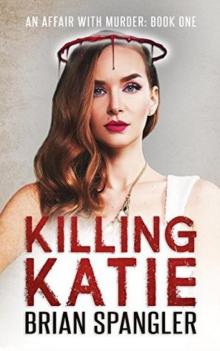 Killing Katie
Killing Katie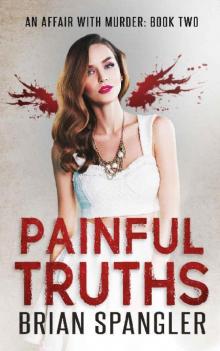 Painful Truths
Painful Truths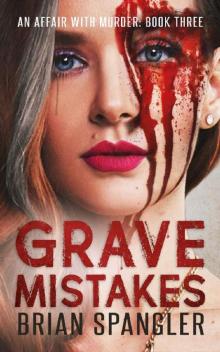 Grave Mistakes_A Deadly Vigilante Crime Thriller
Grave Mistakes_A Deadly Vigilante Crime Thriller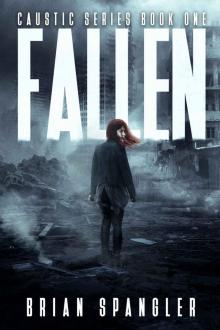 Fallen: Post-Apocalyptic Dystopian Thriller - Book 1 (Caustic)
Fallen: Post-Apocalyptic Dystopian Thriller - Book 1 (Caustic)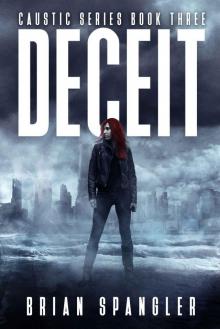 Deceit: Post-Apocalyptic Dystopian Thriller - Book 3 (Caustic)
Deceit: Post-Apocalyptic Dystopian Thriller - Book 3 (Caustic)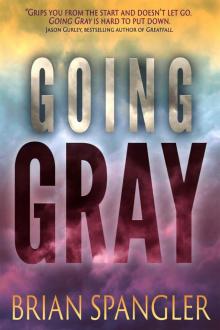 Going Gray
Going Gray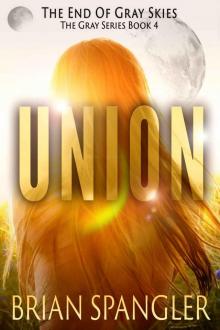 Union
Union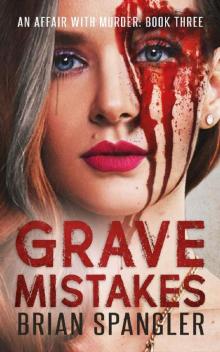 Grave Mistakes: A Deadly Vigilante Crime Thriller (Affair with Murder Book 3)
Grave Mistakes: A Deadly Vigilante Crime Thriller (Affair with Murder Book 3)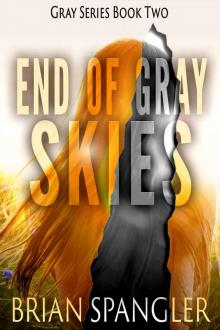 End of Gray Skies: An Apocalyptic Thriller
End of Gray Skies: An Apocalyptic Thriller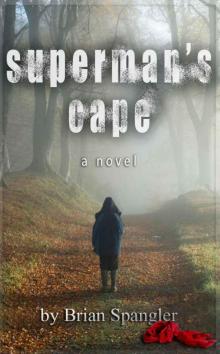 Superman's Cape
Superman's Cape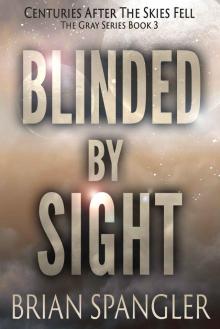 Blinded By Sight (Gray Series Book 3)
Blinded By Sight (Gray Series Book 3)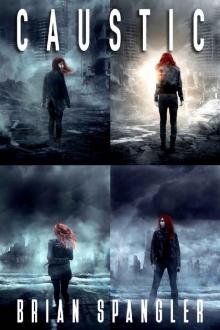 The Complete Four-Book Box Set
The Complete Four-Book Box Set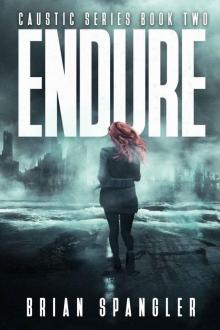 Endure: Post-Apocalyptic Dystopian Thriller - Book 2 (Caustic)
Endure: Post-Apocalyptic Dystopian Thriller - Book 2 (Caustic)